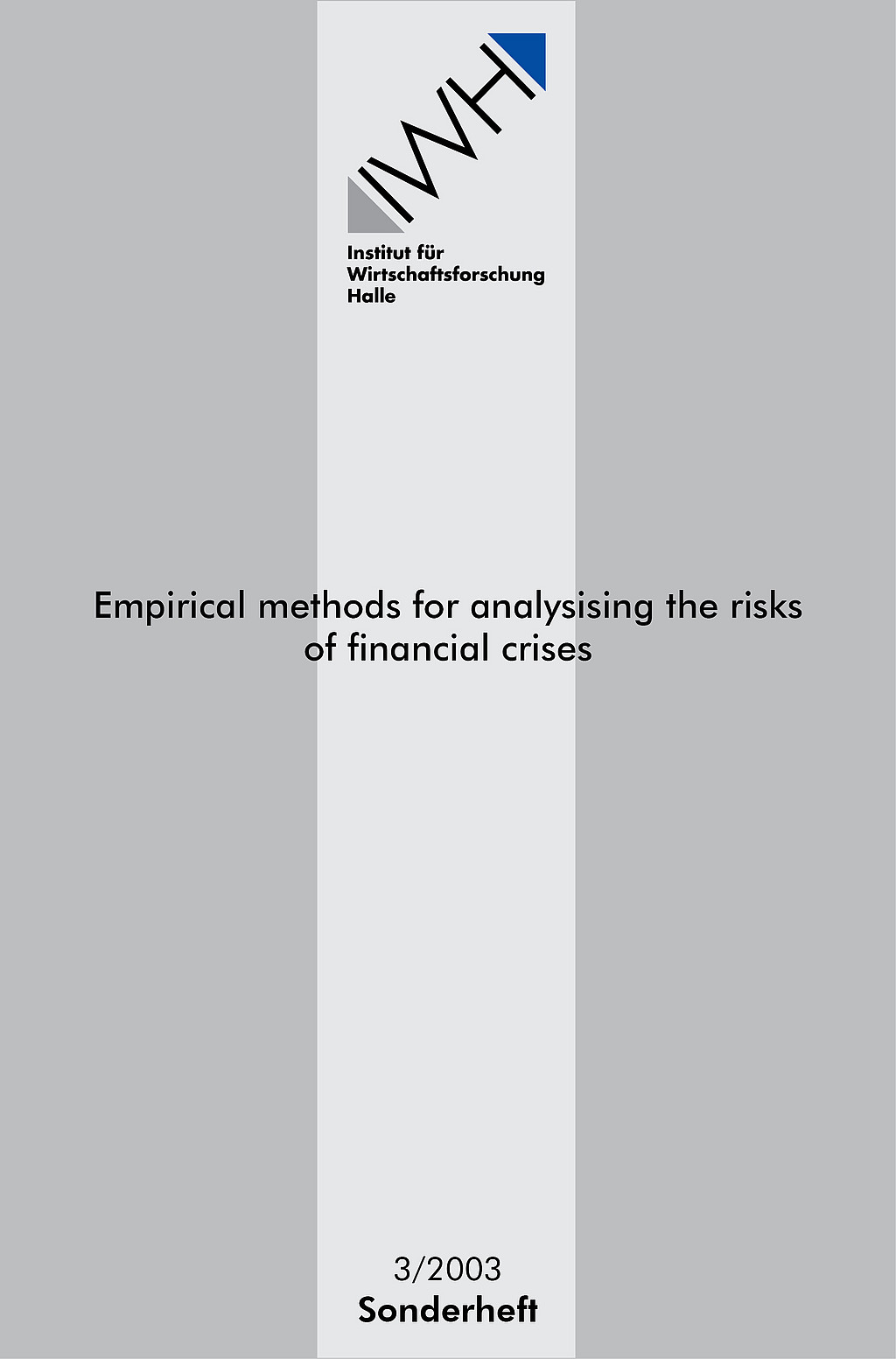
Empirical methods for analysising the risks of financial crises
he vulnerability against financial crises of EU candidate countries and other Central and East European countries is on the agenda of the Institute for Economic Research Halle. Research concentrates on the developing of effective early warning indicators and includes a strong orientation on quantitative methods. This volume presents selected methods for the analyse of financial fragility. The finding complete the signals approach, which is used by the IWH for routine checks of the risk potential of EU candidate an other countries of the region. The four studies presented here were written by the scientific staff of the IWH and by guest researchers. Their objective is to deepen insights into selected problems of financial fragility by using alternative methods.
01. April 2003
The subject of the first paper is the problem of the equilibrium exchange rate. David Kemme and Saktinil Roy present an ‘eclectic’ model, the equilibrium exchange rate being the function of a vector of various macroeconomic fundamentals.
The following two studies deal with the measurement of financial fragility by using a probit model. Matthias Deschryvere’s analysis is based on a multivariate probit model whereas Axel Brüggemann and Thomas Linne use a panel probit model. Both approaches have their merits. Brüggemann’s and Linne’s model includes countries which have not previously experienced a financial crisis thereby utilising valuable information on how a crisis can be avoided. Deschryvere’s approach concentrates solely on crisis countries. The advantage of this country sample is that the results are closer oriented towards the origins of a crisis, but at the detriment that some determinants get a stronger impact than in the panel approach.
The last study, by Jens Hölscher and Matriusz Jarmuzek, presents a fundamental approach to the equilibrium exchange rate, using optimal trade and current account estimations.




